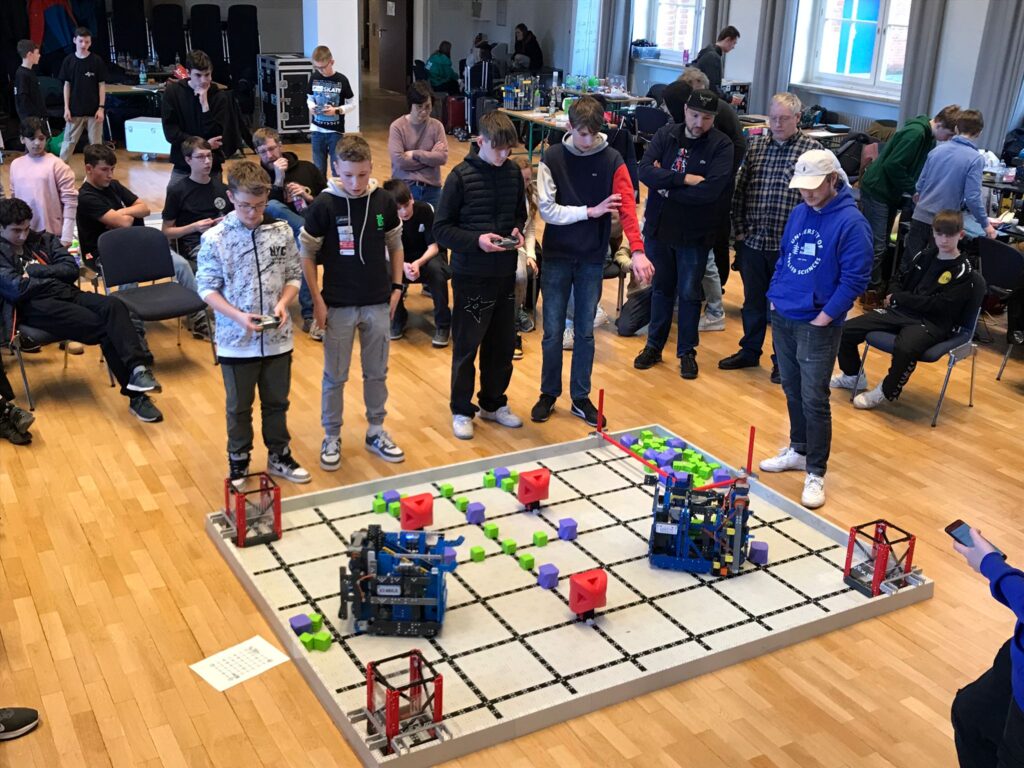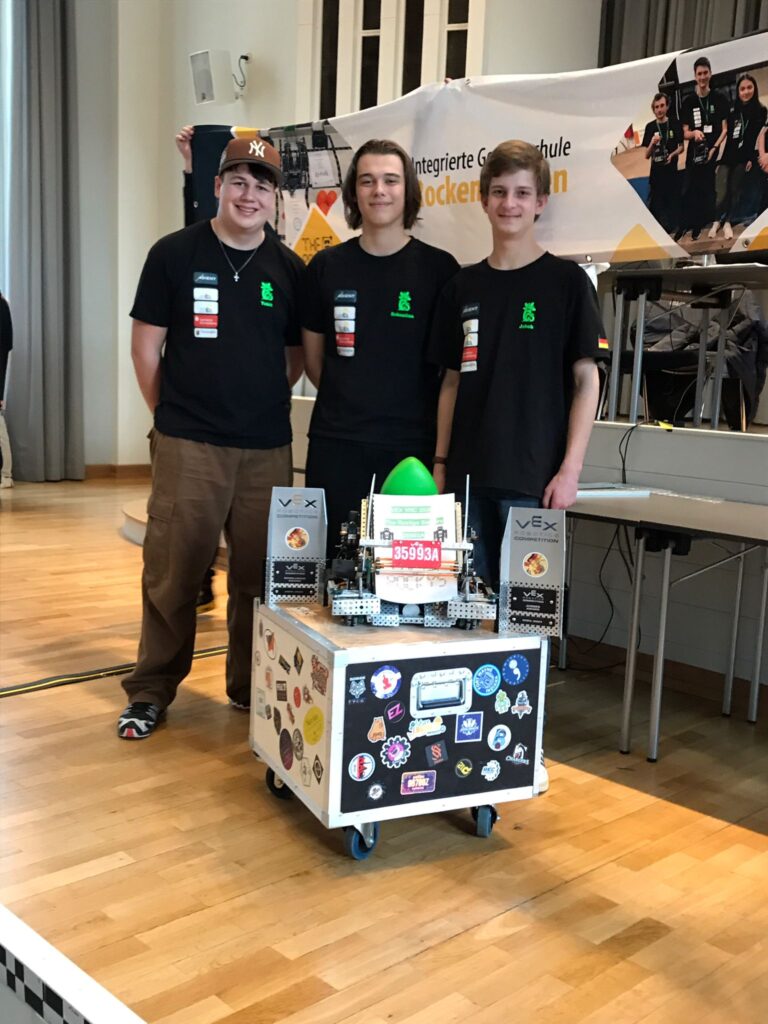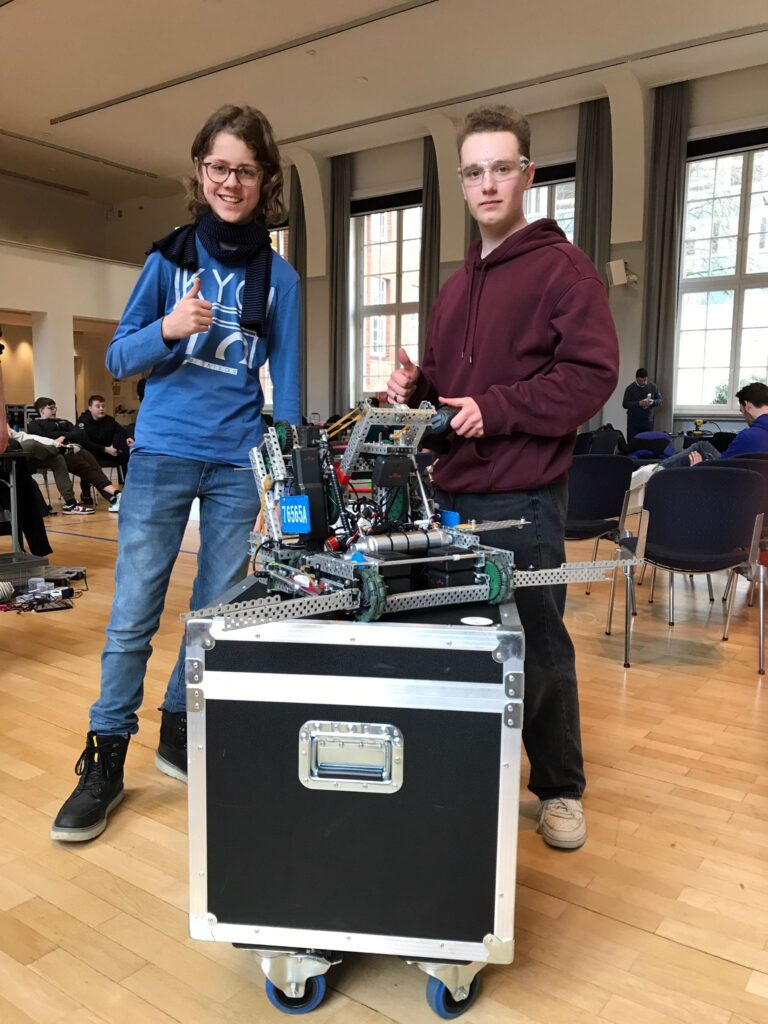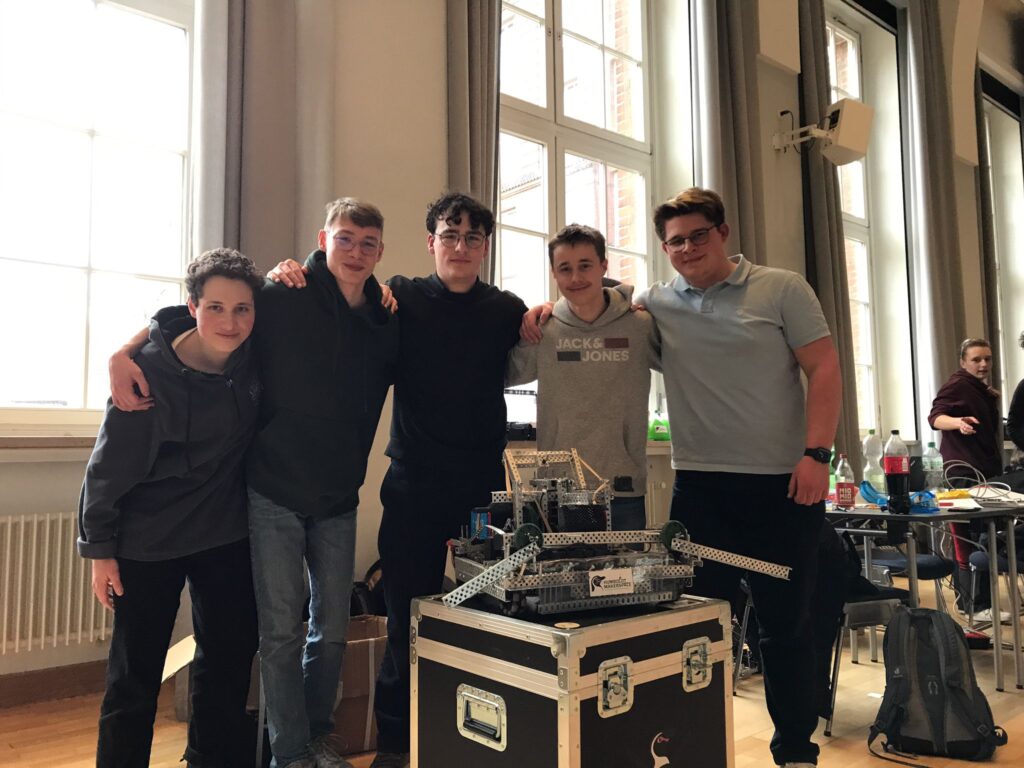VRC und VIQC German Masters Winners:
▪ Winners of the VEX Robotics Competition: Alexander-von-Humboldt-Gymnasium (Berlin) and Heinitz-Gymnasium (Rüdersdorf)
▪ Winners of the VEX IQ Challenge: IGS Rockenhausen (Rhineland-Palatinate) and BEST-Sabel (Berlin)
▪ Almost 35 teams met at the German finals from 6 to 8 March
▪ Students from IGS Rockenhausen (Rhineland-Palatinate) and Ernst-Abbe Gymnasium in Oberkochen secured tickets for the VEX Robotics World Championship in Dallas
Hamburg, March 8, 2024. Hectic activity has reigned over the past three days at the Hamburg University of Applied Sciences (HAW Hamburg). Around 150 pupils from general education schools and vocational schools from all over Germany worked on robots that they had designed themselves over the past few months. Their goal: For the final rounds of the German VEX robot competitions, they wanted to get the best out of their babies. A total of 14 trophies were up for grabs, which were ultimately awarded to twelve different teams.
Winners of the cooperative tournament competitions at the German Masters In the VEX Robotics Competition (VRC), the Alexander-von-Humboldt Gymnasium (Berlin) and the Heinitz-Gymnasium (Rüdersdorf) prevailed. The VEX IQ Challenge (VIQC) was won by an alliance of IGS Rockenhausen (Rhineland-Palatinate) and BEST-Sabel educational institutions (Berlin).

The German Masters gives you the opportunity to qualify for the VEX Worlds. These „World Championships“ will take place from April 25 to May 3 in Dallas, Texas, with 1,000 teams from 50 countries. The prerequisite for flying overseas: winning the Excellence Awards. A jury awards them on the basis of the performance in the competition and other criteria such as the capabilities of a robot in comparison. Students from IGS Rockenhausen (High and Middle School) and the Ernst-Abbe-Gymnasium in Oberkochen (Middle and Elementary School) will travel to Dallas.

The worldwide competitions of the Robotics Education & Competition (REC) Foundation, which is based in the USA, are organized in Germany by the Hamburg-based association roboMINT.
The VEX Robotics Competition (VRC) is open to students from the age of eleven . A team consists of at least two students, it competes in alliances against other teams. The aim of a game in autonomous and remote-controlled driving modes is, among other things, to get as many tripballs as possible into your own goal or into your own offensive zone.

The VEX IQ Challenge (VIQC) is open to students between the ages of eight and 15. A team consists of at least two students, it competes together with another team. One of the goals of the game is to convert as many blocks as possible into goals. Points are also awarded if the robot is parked in the „Supply Zone“ at the end of a match.

